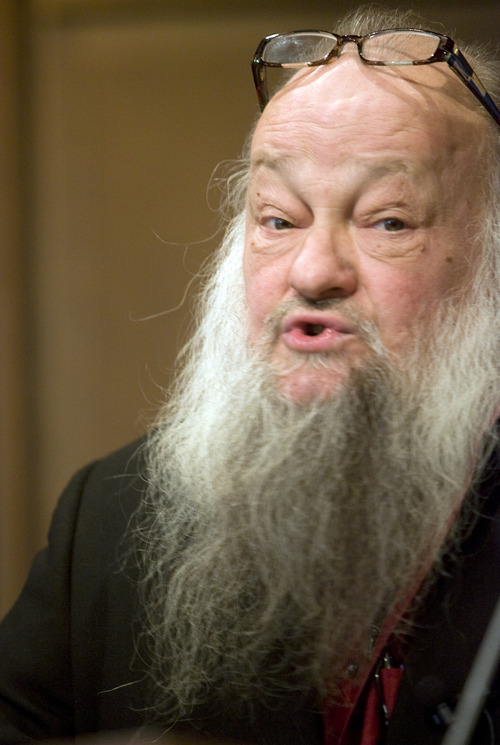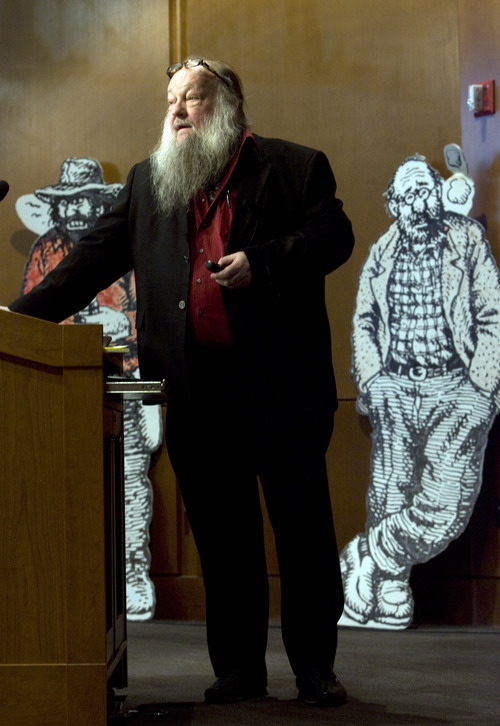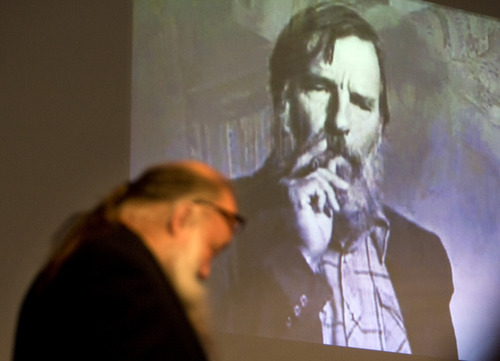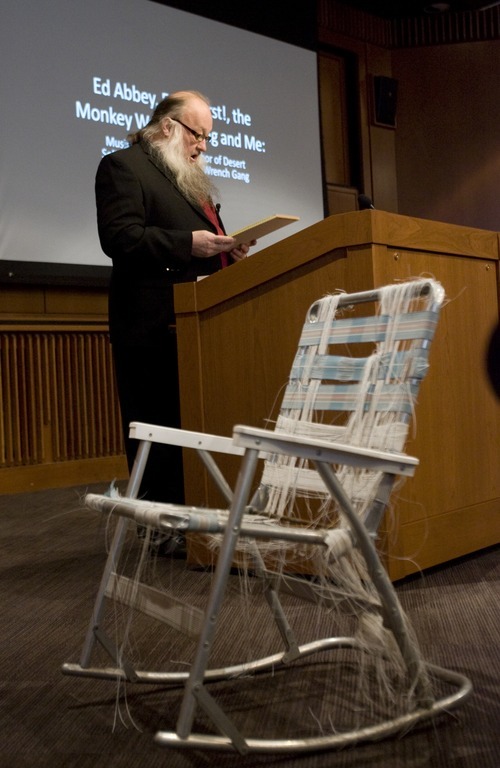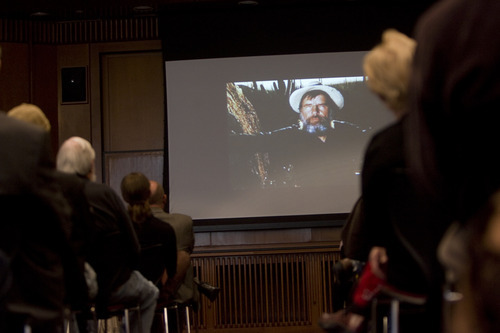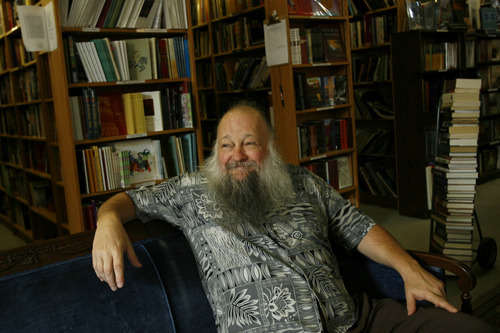This is an archived article that was published on sltrib.com in 2012, and information in the article may be outdated. It is provided only for personal research purposes and may not be reprinted.
Edward Abbey never needed anyone to speak up for him.
The environmentalist and writer, known as the Thoreau of the American West, unabashedly offered his viewpoint of the world in 21 books he authored before his death at age 62 in 1989.
Best known for writing The Monkey Wrench Gang, the tale of activists planning to destroy Glen Canyon Dam in protest of developers trampling public lands in the southwest, Abbey's work is said to have inspired the creation of radical environmental group Earth First! The novel's influence also catapulted the phrase monkey wrenching into the public consciousness as a term to describe breaking the law in the name of saving the earth.
Abbey's reputation stood on its own following the 1976 publication of The Monkey Wrench Gang, said Ken Sanders, a Salt Lake City rare book dealer who knew the writer from the 1970s until Abbey's death.
It's why for years Sanders didn't speak publicly about Abbey. What could he say about the renegade who spurred so many to fight for environmental causes? How could Sanders put into words the huge hole Abbey, one of literature's revered iconoclasts, had left in the lives of admirers?
Two decades after Abbey's death, Sanders is finally speaking out.
"For the longest time, it was too painful [to talk about Abbey]. Now, 22 years has gone by. There is an entire generation of college-age students that weren't born on the planet when Ed Abbey died," said Sanders. "His words and writings are as relevant now as they were then. More so, maybe."
Sanders spoke Sunday at the University of Utah J. Willard Marriott Library. His lecture, "R. Crumb Meets the Monkey Wrench Gang: Edward Abbey and the Modern Environmental Movement, from Earth First! to Tim DeChristopher," kicked off a new exhibit at the library featuring a collection of Abbey memorabilia.
Eric Hvolboll, an attorney and book collector from Santa Barbara, Calif., donated Abbey materials he gathered over the years, including first-edition publications that are signed by Abbey. The author's correspondence with publishers and manuscripts are also on display as well as news stories about Abbey and movie posters of his books that became films.
The exhibit, "Brave Cowboy: An Edward Abbey Retrospective," is free and open to the public starting Monday through April 27.
Judy Jarrow, a program manager at the library, described the exhibit as "visually exciting" — with book jackets for various Abbey writings hanging on the walls as well as handwritten Abbey notes on manuscripts. The exhibit has been a few years in the making following Hvolboll's donation, she said.
"You get an idea for how he proceeded with his writings, which is always kind of fun for people who have read his books," she said.
Sanders said he speaks about his dealings with Abbey now in part to educate a new generation eager to join the environmentalist movement.
He pointed to people in Utah who rallied behind Tim DeChristopher, the state's own monkey wrencher who was convicted last March for falsely bidding on oil and gas leases at a December 2008 Bureau of Land Management auction. In July, a federal judge sentenced DeChristopher to two years in prison.
"The whole issue of preservation of the planet, wilderness preservation versus development and greed is an age-old one. It continues today and the stakes keep getting higher," Sanders said.
"The problem with environmental and conservation battles is the wins are temporary and the losses are forever. The new generation of people coming of age now, they've inherited the planet that we've messed up. It's up to them to do something about it."
The latest generation of activists may find inspiration in Abbey's writings, and not only in The Monkey Wrench Gang, Sanders said. In his essay "A Writer's Credo," Abbey creates "one of the best articulations ever made" about what a writer's moral and civic duty should be.
"I write to entertain my friends and to exasperate our enemies. To oppose, resist, and sabotage the contemporary drift toward a global technocratic police state, whatever its ideological coloration. … I write for the joy and exultation of writing itself. To tell my story," Abbey wrote.
Said Sanders of his friend's passionate words in the essay: "He takes a lot of his contemporaries to task in that essay. It's one of the most deeply philosophical things that he ever wrote."
And sound advice for those working for change today.
The crowd at Sunday's lecture was both a mix of gray-haired people who came of age in Abbey's heyday and a younger set, some who came to learn for the first time about Abbey's trailblazing writings.
"They're trying to articulate and figure out nonviolent, peaceful ways of interjecting themselves into the politics and [debate] over the planet. I think that's really important," Sanders said of young activists looking to Abbey as a role model.
"I hope to bring a taste and flavor for what [Abbey] was all about," he said of his lecture, which featured sound bites and photos of Abbey along with discussion of Abbey's life. "I'm going to try to let you see Ed Abbey and hear Ed Abbey," Sanders told the crowd. "He still doesn't need anyone to speak for him."
Twitter: @mrogers_trib —
If you go
"Brave Cowboy: An Edward Abbey Retrospective"
University of Utah J. Willard Marriott Library
Special Collections Gallery, Level 4
295 S. 1500 East
Runs from Monday to April 27, 9 a.m. to 5 p.m.
Free and open to the public


